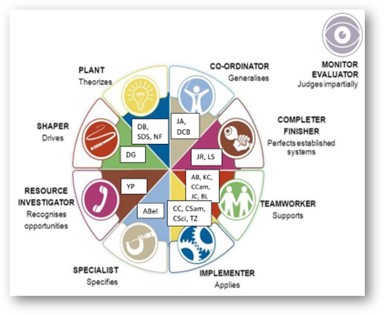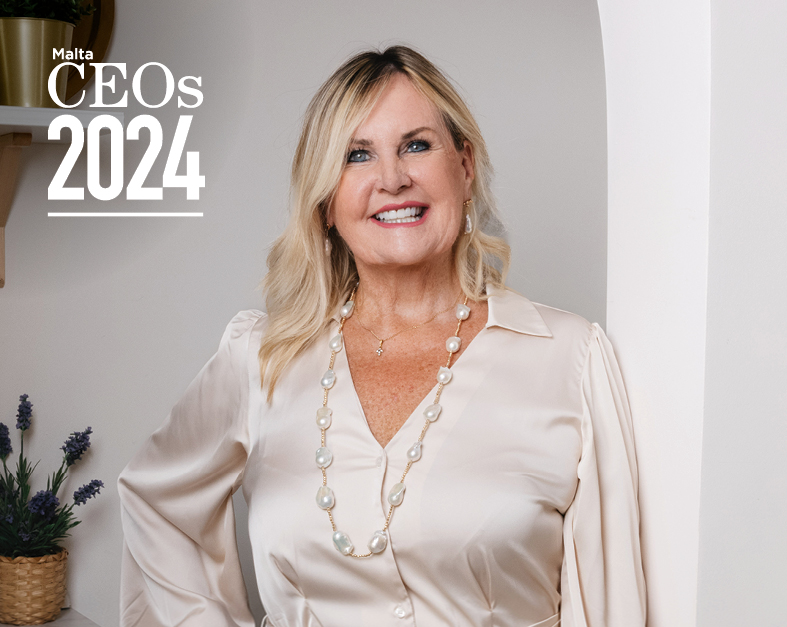This might appear to be a rather superfluous question. Once we have our job description and know what we’re accountable for in our team, wouldn’t that inform on what our role in the team is?
The role we play in a team, however, goes well beyond the function we perform and the technical skills we bring to the table. There is a substantial body of research which shows that there is strength in diversity as this provides the team with different perspectives arising from differences in age, gender, culture, socio-economic background, education, and experience. Indeed, various studies have found that diverse teams focus more on facts and process those facts more carefully, are more innovative, achieve higher than average financial returns and more.
One of the more enduring studies in team effectiveness is the research undertaken by Meredith Belbin starting at the end of the 1960s. Belbin was called in by Henley Management College, then and today one of the leading business schools worldwide, to investigate an inexplicable outcome resulting from the running of a business simulation game in which senior executives from diverse organisations in business and government participated: teams made up of highly intelligent participants as measured by a pre-enrolment IQ test were invariably unsuccessful. Indeed, during the course of the study which spanned several years, out of 25 teams constructed, only three consisting of high-IQ participants, the so called “Apollo team”, won. Indeed, such teams generally finished towards the bottom!
This was because Apollo teams were observed to be difficult to manage, prone to destructive debate, had difficulties with decision-making with members acting on personal preference without taking account of their colleagues, with uncoordinated action undermining actions taken by others. Those Apollo teams which won did so primarily because they took into consideration team building principles with interdependency being present, while none of the participants demonstrated high dominance with the exception of the leader.
What Belbin discovered over the course of several years running his research, was that successful teams were made up of participants who tended towards different types of behaviour (team roles) when working together. Those teams which exhibited a more balanced representation of these team roles were the more successful.
In all, Belbin identified nine different team roles, namely:
- Plant: creative, imaginative, unorthodox; solves difficult problems
- Resource Investigator: extrovert, enthusiastic, communicative; explores opportunities, develops contacts
- Co-ordinator: mature, confident, a good chairperson; clarifies goals, promotes decision-making, delegates well.
- Shaper: challenging, dynamic, thrives on pressure; has the drive and courage to overcome obstacles.
- Monitor Evaluator: sober, strategic, discerning; sees all options, judges accurately.
- Teamworker: co-operative, mild, perceptive, diplomatic; listens, builds, averts friction, calms the waters.
- Implementer: disciplined, reliable, conservative, efficient; turns ideas into practical actions.
- Completer Finisher: painstaking, conscientious, anxious; searches out errors and omissions, delivers on time.
- Specialist: single-minded, self-starting, dedicated; provides knowledge and skills in rare supply.
As one can surmise, while each role has its signature strengths, so do they also have what are called “allowable weaknesses”, allowable in the sense that the team can take measures to mitigate their negative effect. For example, while the Resource Investigator is described as an extrovert, brimming with enthusiasm and communicative, they also tend to be overoptimistic and quickly lose interest once the initial enthusiasm has faded. Likewise, while the Co-ordinator is seen as mature, confident, and able to identify the strengths in others which enables them to delegate well, they can also be perceived as being manipulative and prone to delegate personal work.
An analysis of these nine roles will also show that there are three categories to be discerned: Action-oriented roles (Shaper, Implementer and Completer Finisher), Social-oriented roles (Resource Investigator, Teamworker and Coordinator) and Thinking roles (Plant, Monitor-Evaluator, Specialist). Perhaps even more interesting is that there are four team role opposites:
Plant ↔ Implementer
Shaper ↔ Teamworker
Resource Investigator ↔ Completer Finisher
Specialist ↔ Coordinator
The Monitor-Evaluator, by definition is impartial, sober and discerning, weighing all options before making recommendations or commitments, and hence stands apart.
It is highly unlikely that an individual would be strong in all of these behaviours, but a team which exhibits a combined, balanced representation of these behaviours, stands to be significantly more effective and successful, not to mention exhibiting stronger engagement and stability.
Nowadays, one can establish the team’s composition in terms of team roles using the online 3600 assessment which not only provides one with one’s own self-perception of the team roles they perform, but also how their colleagues on the team perceive their role. Moreover, this allows for a picture of the team to be built indicating its strengths and any team role gaps.

For example, the team map shown above shows the top team role for a management team I was commissioned to work with. It immediately brought into perspective the challenges the team was facing, including endless debates without resultant action (only one Shaper present) or rational evaluation (no Monitor-Evaluator). During the subsequent workshop to assess the findings, this realisation allowed the team leader to give themselves “permission” to be more of a Shaper to focus the team more towards desired outcomes such as launching new products and services on time.
Importantly, the Belbin Team Role Assessment provides the team with knowledge about each other’s pre-disposition towards specific team roles thus enabling a deeper understanding of one another, which helps to strength connections. It also provides a common language to aid in team building and helps to bring focus to the team’s work.
It becomes apparent that understanding one’s relative strengths in terms of team roles present the organisation with a powerful tool for organisational development, including the creation of project teams, internal and external recruitment, team (re)alignment, career development as well as personal and professional development.
Indeed, I find the Belbin Team Role Assessment is the first go-to tool that helps establish a baseline for the team in pursuit of higher performance and provides rich information for the team to explore and grow from.
Getting some well-needed rest: A reminder to switch off outside of work
This does not entail slowing down your productivity, but it concerns setting boundaries between personal life and work.
Is It too late to start building wealth for retirement?
An anxious financial controller in their 40s is concerned about their financial future due to low savings and no investments ...
6 ways business leaders can instil a culture of creativity within their teams
At the heart of it, business leaders need to focus on fostering their team’s creativity, rather than simply relying on ...
Beat burnout before it beats you: How to stress-proof your way out of it
It has an insidious way of sneaking up on you and leaving you floored once it pounces: here are four ...











